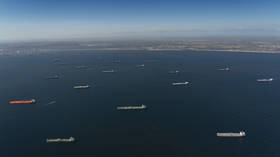Some burglars haven’t gotten far. Shortly after the lockdown in New York, a would-be thief broke into Dinosaur Bar-B-Que, in Harlem, and put a few half-empty bottles of alcohol into a bag. When he came upstairs from the basement, police officers were waiting for him.
“It was the dumbest break-in ever,” said John Stage, the owner.
But other thieves have settled in for a marathon binge. Soul de Cuba, the New Haven cafe, hosted an unwelcome visitor for days.
On April 11, about an hour after the owner, Jesus Puerto, left, an intruder entered the deserted restaurant. He spent three days inside, drinking liquor and breaking bottles. By the time he was arrested, more than 70 bottles of alcohol were missing, contaminated or empty, police records show. Mr. Puerto estimated the break-in cost him at least $5,000, for professional cleanup, glassware, missing and damaged iPads and other goods.
But as news outlets reported the story, he said, he was surprised by an online accusation that he might have staged the intrusion to collect an insurance payment. “My insurance premium is not a low premium,” he said. “There is no money to be made in this. At all. What benefit would we have had?”
Like many restaurant owners, Mr. Razavi, in San Jose, expected the shutdown to last only a few weeks. When he closed his Loft Bar and Bistro, he cleared the bar on the street level and moved all the cash to a safe in the office. But he left the second-floor bar as it was.
Article source: https://www.nytimes.com/2020/04/30/dining/restaurants-burglary-coronavirus.html

